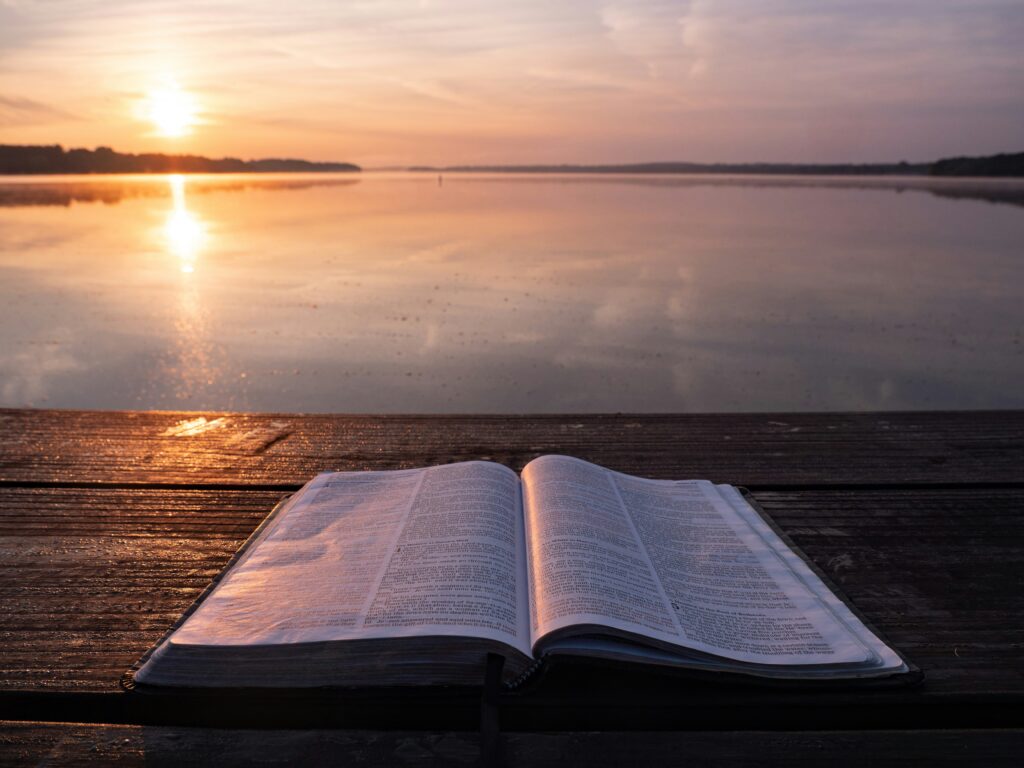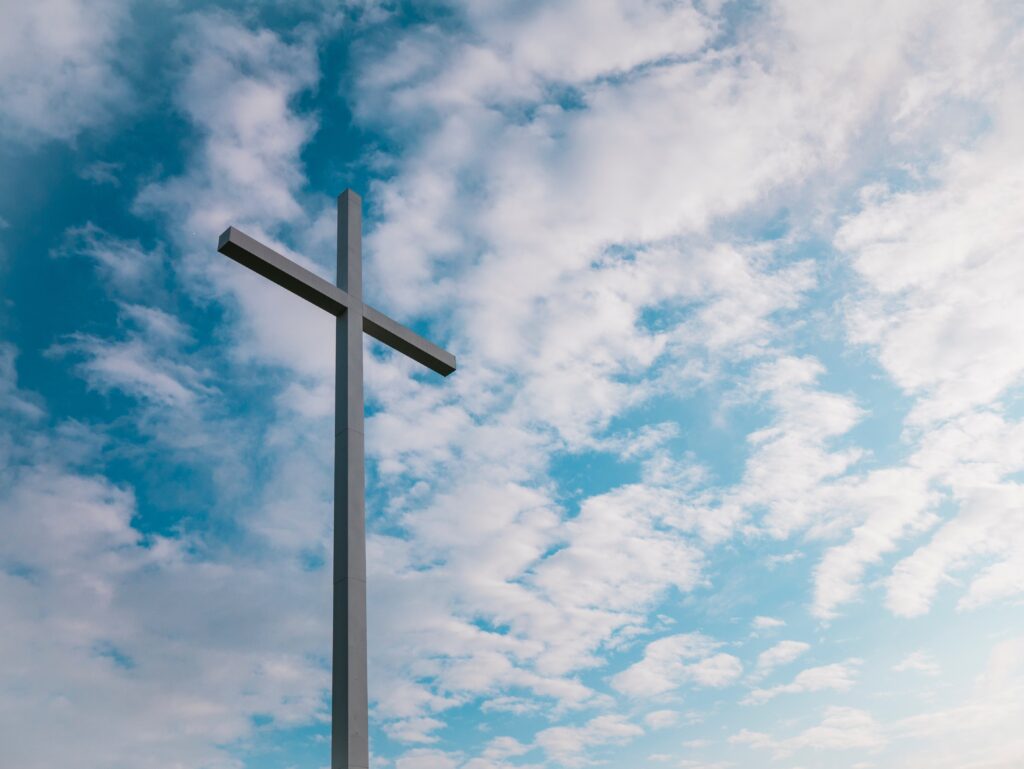
The concept of God being one is a foundational principle in Christianity, as emphasized in Deuteronomy 6:4: “Hear, O Israel: The Lord our God, the Lord is one.” This affirmation underscores the monotheistic belief in the existence of only one true God. For further reading read this article.
However, there are instances in both the Old and New Testaments where the Hebrew and Greek words for “one” (e.g. ,‘eḥāḏ in Hebrew, εἷς (eis) in Greek) can imply a complex unity or plurality rather than a simple numerical singularity. Examples such as Genesis 2:24, Jeremiah 32:39, and 1 Chronicles 12:38 in the Old Testament, as well as Galatians 3:28, Romans 12:4, and 1 Corinthians 10:17 in the New Testament, suggest a unity that encompasses diversity.
Trinitarians affirm a monotheistic belief in one God who exists eternally in three distinct persons: Father, Son (Jesus Christ), and Holy Spirit. This understanding of the Trinity acknowledges the mystery and complexity of God’s nature, with each person being fully and equally God while also maintaining their distinctiveness.
The concept of the Angel of the LORD, often seen in the Old Testament, is understood by Trinitarians as a manifestation of the pre-incarnate Christ. While the identity of the Angel of the LORD can vary depending on the context of the text, Trinitarians interpret certain passages as pointing to the presence and activity of the second person of the Trinity, Jesus Christ, before His incarnation.
Overall, the doctrine of the Trinity emphasizes the unity of God’s essence while recognizing the distinctiveness of the Father, Son, and Holy Spirit. While human language and analogies may fall short of fully describing this divine mystery, the biblical revelation invites believers to embrace the complexity of God’s nature with humility and reverence. Let’s analyze the main passage.
In the writings of Hosea, there are indeed references to the Angel of the LORD that suggest a recognition of divine identity. The Angel of the LORD appears in various contexts throughout the Old Testament, often being the presence and authority of God Himself while also being distinct from the Father Zechariah 1:11-13. The Angel is also identified as the presence of God, Isaiah 63:9-10 (cf. Exodus 33:2, 14).
“2 The LORD also brings a charge against Judah, And will punish Jacob according to his ways; According to his deeds He will recompense him. 3 He took his brother by the heel in the womb, And in his strength he struggled with God. 4 Yes, he struggled with the Angel and prevailed; He wept, and sought favor from Him. He found Him in Bethel, And there He spoke to us—5 That is, the LORD God of hosts. The LORD is His memorable name.” – Hosea 12:2-5 (NKJV)
Here we see Hosea referencing several passages from Genesis. The Genesis narrative may not explicitly identify God as the angel that wrestled with Jacob in the context of Genesis 32. Hosea does this by using the surrounding context of Genesis. Later biblical writers, including prophets such as Moses (*), Zechariah 12:8 (*), and Isaiah (*) also refer to the Angel of the LORD in contexts that suggest divine identity. This collective testimony across various biblical texts underscores the understanding of the Angel of the LORD as more than a mere messenger but as an appearance of God Himself. Hosea’s reference to the Angel of the LORD is in connection with Jacob’s wrestling encounter with God, even though no where is the angel mentioned in the direct context. This shows that Hosea knew this Angel was divine like God. In verse 4 it also says “He spoke to us“, us being plural עִמָּֽנוּ (‘im·mā·nū) | first person common plural. Meaning There was more than one identified person as God that found Jacob in Bethel. This makes more sense when we get to Genesis 35:7 when it says “they revealed themselves.” if translated literally from the Hebrew to english, more on this later.
- 22 But the children struggled together within her; and she said, “If all is well, why am I like this?” So she went to inquire of the LORD.23 And the LORD said to her: “Two nations are in your womb,Two peoples shall be separated from your body;
One people shall be stronger than the other, And the older shall serve the younger.” 24 So when her days were fulfilled for her to give birth, indeed there were twins in her womb. 25 And the first came out red. He was like a hairy garment all over; so they called his name Esau. 26 Afterward his brother came out, and his hand took hold of Esau’s heel; so his name was called Jacob. Isaac was sixty years old when she bore them. – Genesis 25:22-26 (NKJV)
Here is the first place in the text where Hosea is getting his conclusion from. Jacob and Esau would eventually later become two different nations as the LORD said. Jacob as Isreal and Esau as Edom.
- 10 “And it happened, at the time when the flocks conceived, that I lifted my eyes and saw in a dream, and behold, the rams which leaped upon the flocks were streaked, speckled, and gray-spotted. 11 Then the Angel of God spoke to me in a dream, saying, ‘Jacob.’ And I said, ‘Here I am.’ 12 And He said, ‘Lift your eyes now and see, all the rams which leap on the flocks are streaked, speckled, and gray-spotted; for I have seen all that Laban is doing to you. 13 I am the God (‘ēl) of Bethel, where you anointed the pillar and where you made a vow to Me. Now arise, get out of this land, and return to the land of your family.’ ” – Genesis 31:10-13 (NKJV)
The Angel of God appears to Jacob in his time of persecution with his Uncle Laban and eventually says to Jacob. “I am the God of Bethel.” Which means “house of God.” Abraham dedicated to the LORD alone an altar in between Bethel and Ai; and worshipped him there at the altar. Jacob also encountered God in a holy place when he fled from his brother Esau. He later named Bethel, knowing that it was the house of God and the gate of heaven.
Abram (Abraham)
- “7 Then the LORD appeared to Abram and said, “To your descendants I will give this land.” And there he built an altar to the LORD, who had appeared to him. 8 And he moved from there to the mountain east of Bethel, and he pitched his tent with Bethel on the west and Ai on the east; there he built an altar to the LORD and called on the name of the LORD.” – Genesis 12:7-8 (NKJV)
- “3 And he went on his journey from the South as far as Bethel, to the place where his tent had been at the beginning, between Bethel and Ai,” – Genesis 13:3 (NKJV)
Jacob
- “10 Jacob left Beersheba and went toward Haran. 11 And he came to a certain place and stayed there that night, because the sun had set. Taking one of the stones of the place, he put it under his head and lay down in that place to sleep. 12 And he dreamed, and behold, there was a ladder set up on the earth, and the top of it reached to heaven. And behold, the angels of God were ascending and descending on it! 13 And behold, the LORD stood above it and said, “I am the LORD, the God of Abraham your father and the God of Isaac. The land on which you lie I will give to you and to your offspring. 14 Your offspring shall be like the dust of the earth, and you shall spread abroad to the west and to the east and to the north and to the south, and in you and your offspring shall all the families of the earth be blessed. 15 Behold, I am with you and will keep you wherever you go, and will bring you back to this land. For I will not leave you until I have done what I have promised you.” 16 Then Jacob awoke from his sleep and said, “Surely the LORD is in this place, and I did not know it.” 17 And he was afraid and said, “How awesome is this place! This is none other than the house of God, and this is the gate of heaven.” 18 So early in the morning Jacob took the stone that he had put under his head and set it up for a pillar and poured oil on the top of it. 19 He called the name of that place Bethel, but the name of the city was Luz at the first. 20 Then Jacob made a vow, saying, “If God will be with me and will keep me in this way that I go, and will give me bread to eat and clothing to wear, 21 so that I come again to my father’s house in peace, then the LORD shall be my God, 22 and this stone, which I have set up for a pillar, shall be God’s house. And of all that you give me I will give a full tenth to you.” – Genesis 28:10-22 (NKJV)
Now in full, we see Abraham pitching his tent in between the place of Bethel and Ai and the place where Jacob dreamed which he eventually called Bethel. In Jacob’s dream, he saw the ladder to heaven, “the gate of heaven”. Where angels went up and down the ladder. The fact that the Angel of God says that he is the God of Bethel. The place Jacob named after God came to him in his dream when he was fleeing from his brother Esau. Now to tie it all together. God speaks to Jacob and tells him to “make an altar there to God.”
- “Then God (‘ĕlōhîm) said to Jacob, “Arise, go up to Bethel and dwell there; and make an altar there to God (‘ēl), who appeared to you when you fled from the face of Esau your brother.” 2 And Jacob said to his household and to all who were with him, “Put away the foreign gods that are among you, purify yourselves, and change your garments. 3 Then let us arise and go up to Bethel; and I will make an altar there to God (‘ĕlōhîm), who answered me in the day of my distress and has been with me in the way which I have gone…7 And he built an altar there and called the place El Bethel, because there God (‘ĕlōhîm) appeared to him when he fled from the face of his brother…15 And Jacob called the name of the place where God God (‘ĕlōhîm) spoke with him, Bethel.” – Genesis 35:1-3, 7, 15 (NKJV)”
Notice how in verse 1 God (‘ĕlōhîm) speaks as referring to someone else who is God (‘ēl) who appeared to Jacob. When you read verses 7 & 15 ‘ēl is called ‘ĕlōhîm. Making it clear that God definitely spoke to Jacob based on the context. Yet, it is also clear that God is referring to someone else who is also him i.e. the Angel of God. No wonder Hosea did not doubt that Angel was God, yet God sent him. Hagar even recognizes the Angel of the Lord as God and the place where she saw him was called בְּאֵר לַחַי רֹאִי. Beer-la′hai-roi It means “well of the Living One who sees me” or “well of the Living One who sees.” Jacob in his prayer, prays to God and the Angel that redeemed him.
—————————————————————————————————
By: Sam Shamoun
- “and there he built an altar and called the place El-bethel, because there God (Elohim) had revealed himself (nigluw) to him when he fled from his brother.” – Genesis 35:7
The verb which modifies God (Elohim) is nigluw (revealed) and is the plural of gla, which means that the verse is more literally rendered as, “Gods, They revealed themselves to him.”
It shouldn’t surprise the readers that both Abraham and Jacob could use such plurals for God since these men were aware that their God was(is) multi-Personal.
—————————————————————————————————
“7 The angel of the LORD found her by a spring of water in the wilderness, the spring on the way to Shur. 8 And he said, “Hagar, maid of Sar′ai, where have you come from and where are you going?” She said, “I am fleeing from my mistress Sar′ai.” 9 The angel of the LORD said to her, “Return to your mistress, and submit to her.” 10 The angel of the LORD also said to her, “I will so greatly multiply your descendants that they cannot be numbered for multitude.” 11 And the angel of the LORD said to her, “Behold, you are with child, and shall bear a son; you shall call his name Ish′mael; because the LORD has given heed to your affliction. 12 He shall be a wild ass of a man, his hand against every man and every man’s hand against him; and he shall dwell over against all his kinsmen.” 13 So she called the name of the LORD who spoke to her, “Thou art a God of seeing”; for she said, “Have I really seen God and remained alive after seeing him?” 14 Therefore the well was called Beer-la′hai-roi; it lies between Kadesh and Bered.” Genesis 16:7-14 (RSV, Verse 13 interlinear & Lexicon)
- “15 And he blessed Joseph, and said: “God, before whom my fathers Abraham and Isaac walked, The God who has fed me all my life long to this day, 16 The Angel who has redeemed me from all evil, Bless the lads; Let my name be named upon them, And the name of my fathers Abraham and Isaac; And let them grow into a multitude in the midst of the earth.” – Genesis 48:15-16 (NKJV, verse 6 Lexicon)
Here, Jacob directs his prayer to God and then invokes the presence of the Angel, specifically addressing the Angel who he acknowledges as the one who “redeemed me from all evil…” Continuing to read where it mentions “bless the lads” and so forth, it becomes evident that Jacob is directly addressing the Angel in his prayer. The term used, יְבָרֵךְ (yə·ḇā·rêḵ), meaning “bless the lads,” is a verb in the Piel imperfect – third person masculine singular form, indicating that Joseph is indeed speaking directly to the Angel in his prayer. Jacob then ask the Angel to let his name, be named among his children and that he grows his descendants. Yet, only God can create life and bless his descendants to grow. This specific Angel is more than just one of God’s created Angels.
This would also undermine the concept of agency, as the Angel’s appearance to Jacob wasn’t in any way suggestive of agency; instead, Jacob is seen praying both to God and distinctly to the Angel. This aspect adds to the remarkable nature of the encounter.
Related articles






Excellent blog here! Also your site loads up very fast! What web host are you using? Can I get your affiliate link to your host? I wish my web site loaded up as fast as yours lol
I like this post, enjoyed this one thankyou for putting up.